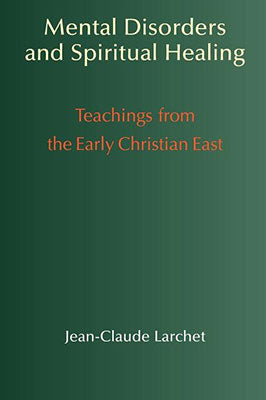
Mental Disorders & Spiritual Healing: Teachings from the Early Christian East
U.S. Delivery in 3-9 business days.

This work makes an essential contribution to the history of mental illnesses and their therapies in a domain very little studied until now. Confronted by the numerous problems still posed today in understanding these illnesses, their treatment, and their relationship to those who are sick, Jean-Claude Larchet shows the importance offered for reflection and current practice by early Christian thought and experience.
After indicating how the Fathers understood the psyche and its relationship with body and spirit, the author gives a detailed analysis of the different causes they attribute to mental illness and the various treatments recommended. At the same time he shows how, relying on fundamental Christian values, they manifest a constant solicitude and respect for the sick, and how they are at pains to integrate them into community life and have them participate in their own healing, foreshadowing in this way the needs and aspirations of our own time. The last part discloses the deep significance of one of the strangest and most fascinating forms of asceticism the Christian East has known: 'folly for the sake of Christ', a madness feigned with the goal of attaining a high degree of humility, but also a way well-suited, through a close experience of their condition, to help those who are often among, today as in the past, the most destitute.
Jean-Claude Larchet is docteur dès lettres et sciences humaines, docteur en théologie, and docteur d'État en philosophie. The author of Thérapeutique des maladies spirituelles (Paris: Editions de l'Ancre, 1991) and The Theology of Illness (Crestwood, New York: St Vladimir's Seminary Press, 2002), he is a specialist in questions of health, sickness, and healing. He is today one of the foremost St Maximus the Confessor specialists.